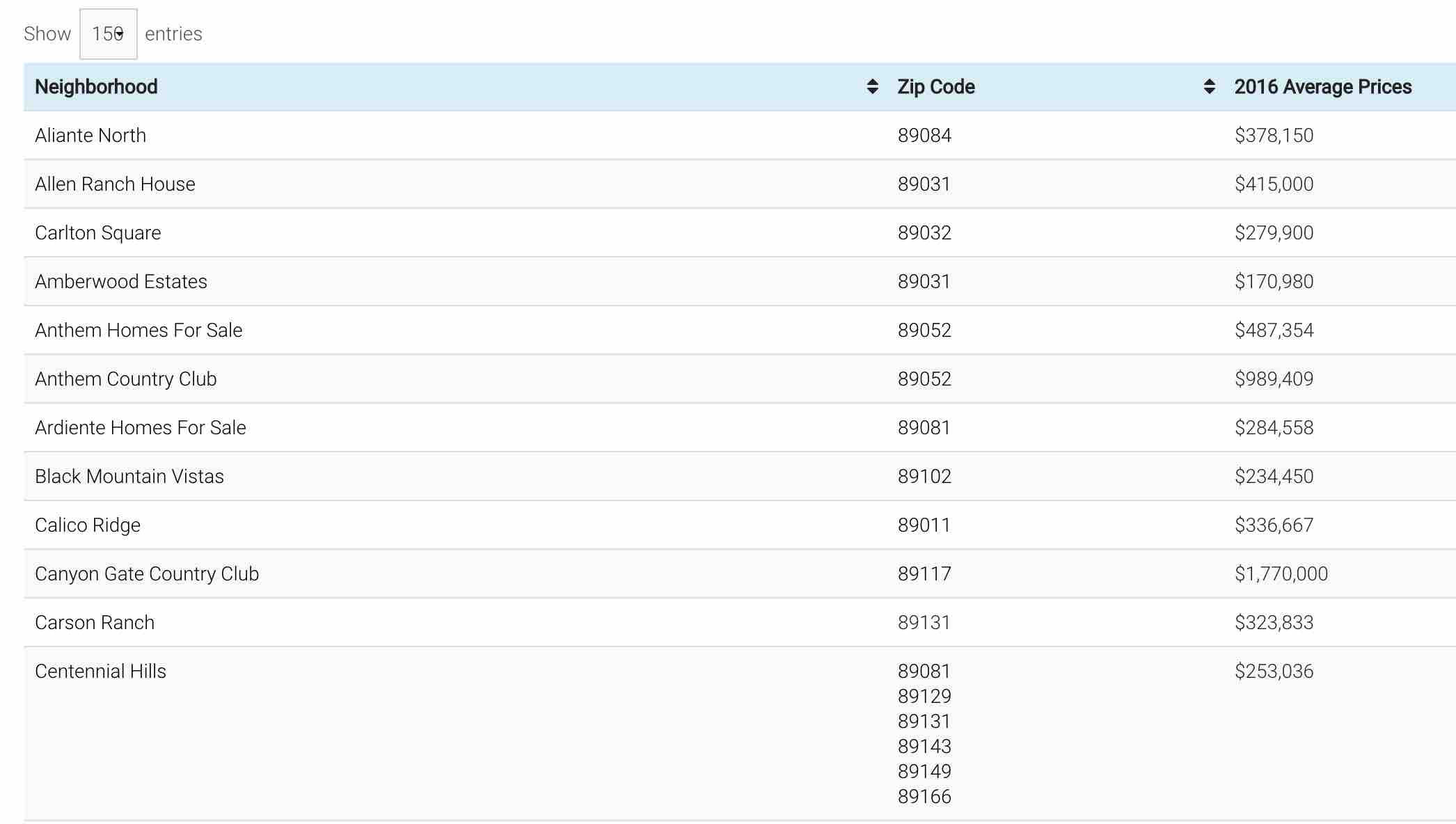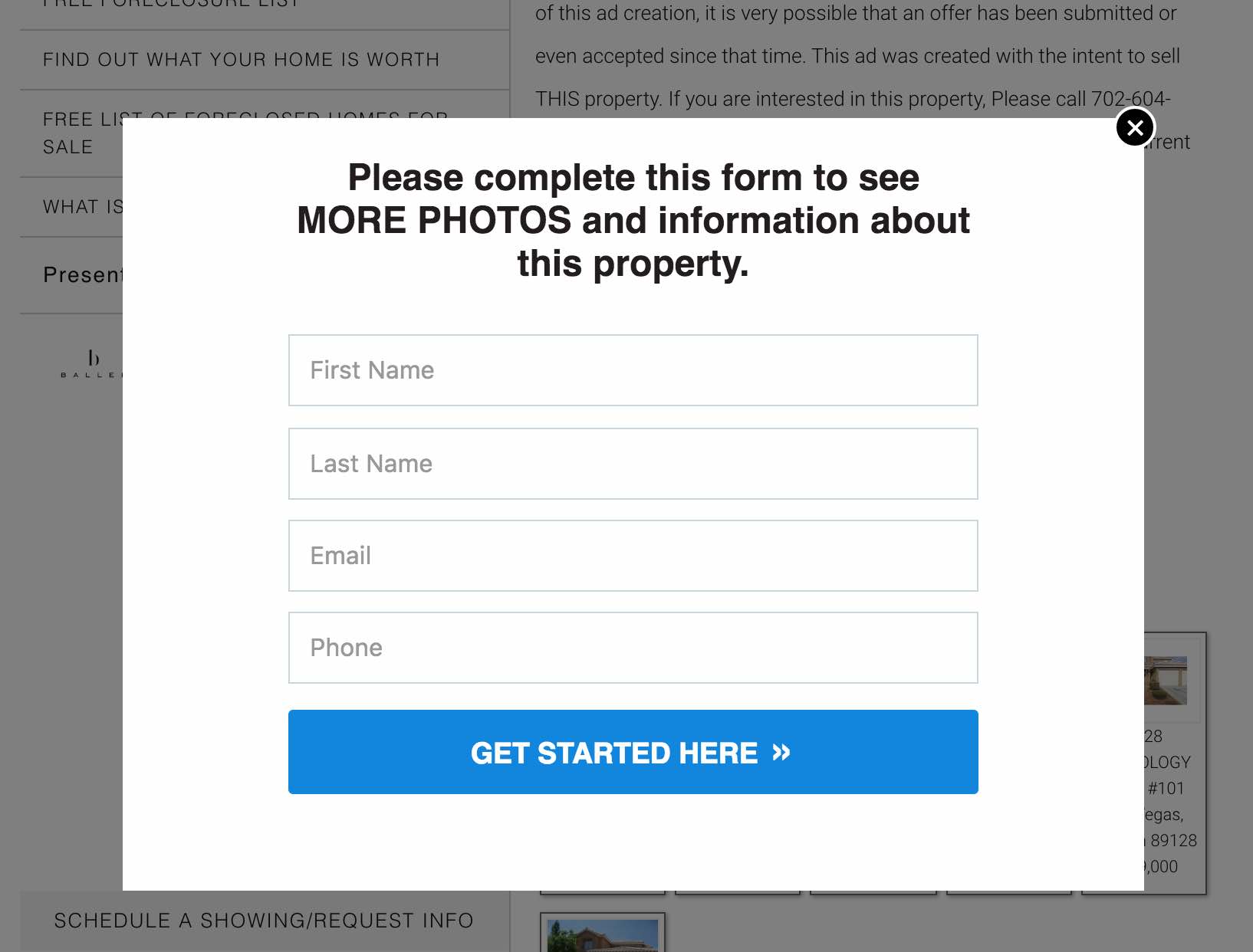INTRODUCTION
Your website doesn’t generate leads, You do. That being said, the functionality of a website, and how you drive traffic to it can make a significant difference in your quantity and even quality of real estate leads.
Listen. I do everything I can to get organic leads through search engines because it's a gift that keeps on giving.
Your Website doesn't generate leads, YOU DO!
When you spend some time creating a valuable, customer-centric (user-friendly) website with strong IDX (real estate listings), Home Value Offers, Real Estate Market Reports, and Real Estate Advice (blog), you can do a big business on web leads.
What you can’t do - is “set it and forget it”.
You may also enjoy: The Basics of Real Estate Lead Generation
OPTIMIZE YOUR REAL ESTATE WEBSITE FOR THE SEARCH ENGINES
From the beginning, your website should be designed with SEO in mind. Search Engine Optimization is the most important factor in getting your information to the right viewers.
WHAT IS SEARCH ENGINE OPTIMIZATION?
Search Engine Optimization, or SEO, are strategies to obtain visitors to a website through a high-ranking placement in the search results page of a search engine (SERP) - including Google, Bing, Yahoo, and other search engines.
THE GOAL FOR SEO
The goal of SEO is to have your pages rank for keywords people are actually searching for. Then, get clicks from those rankings, and leads from those clicks.
WHAT DOES IT TAKE TO RANK ON SEARCH ENGINES
There's a whole lot of things you can do to help you GAIN rank in the search engines once your website is up and running. But in order to be discovered by the search engines initially, you need three things:
- Domain name
- Website
- Host for Your Website
Domain Name
Select a domain name based on the following criteria:
- Fits nicely on a business card
- Easy to say and remember
- Doesn't alienate anyone
- May contain your brand or be generic
Here's the deal:
Alienation: Let's look at an example of how you may accidentally alienate someone with your domain name. You create the domain name, "Las Vegas Luxury Real Estate". By using the word luxury in your domain name, you may be alienating anyone who wants to buy or sell property in the $200,000 price range.
Branding: Brand search is now a part of Google's algorithm. The more times people search your brand in association with your service or product, the more likely you are to rank in the future for that product or service.
Things to note about domain names:
- Exact match domain keywords do NOT add to your SEO. In fact, they may trip spam filters and result in penalties in search engine rankings.
- A longer registration sends a positive signal to Google. When you purchase a domain name for 5 years, or 10 years, you're telling the search engines you plan to stick around for a while. A one-year registration isn't disastrous, but a longer term sends a more powerful message.
- When you purchase an existing domain name, you inherit the existing SEO - both positive, and negative.
Website
A great platform includes the following:
- Is mobile responsive
- Integrates well with IDX
- Allows for additional pages
- Includes a blog
Most real estate agents make the mistake of starting with design. They shop website designs and themes based on how they look, not how they work. This is a costly mistake.
Desktop designs don’t transfer to mobile. On a desktop, everything is large. Your wide theme graphics and slideshows that excite you on desktop won’t thrill you or your customer on a mobile device.
Fancy sometimes kills function.
When a user lands on your website, they want what they want immediately. Users don’t want to click or scroll unnecessarily.
Large graphics above the fold (on the top part of the screen that shows before you have to scroll down) that are “fluff” and not function can chase away your visitor rather than bring them in.
Also selected for you: Do You Have These 10 Essentials in Your Real Estate Website?
CHOOSING THE RIGHT PLATFORM?
 There are many fantastic website platforms on the market. I've chosen WordPress.
There are many fantastic website platforms on the market. I've chosen WordPress.
Not only did I choose WordPress as a platform, but my Marketing Company designed what we call B.R.E.W.s - Ballen Real Estate Websites. Our B.R.E.W.s are crafted on the WordPress platform to give users ultimate control and unlimited potential over their digital marketing.
Here's what you need to know when choosing a website platform:
- Free doesn't get you very far. Your website should be hosted somewhere. This would be a company that actually puts your site on a server and provides public access through it's servers. You would be paying for this service. Hosts would be companies like GoDaddy, HostGator, BlueHost and MediaTemple, just to name a few. You are not required to get your platform from your host generally. You could have a WordPress website and choose the host and change hosts later if need be.
- Your website should offer the ability to add unlimited pages. If you are going to build out community pages like I teach my students and do for my websites and client sites, you'll need them!
- It's fantastic if your website has a built in blog. Blogs are great for ongoing real estate articles, market reports, local news and events, directories and guides and other items of value that bring leads into the funnel.
- FAST! This generally starts with hosting. If your website is on an overpacked server and you are sharing space with a lot of other websites, your speed may suffer. Google reports that if your page loads in longer than 3 seconds, you will lose 40% of your customers after 3 seconds. Others have reported 70% will be gone after 5 seconds. Watch your WordPress Plugins. They are well known to create major lag in page load time. Another speed eater is images. Images should be resized and compressed to load quickly. Take a look at your images and make sure none of them are showing MB in the file size. You can load pictures 50kb in size and still have great looking pictures.
- No limits on codes and direct access to the source. You may not want to become a computer scientist overnight, yet you may want to install simple things like the Clicky Tracking Code or a LeadBox from LeadPages to make Offers, install chat software like Zopim or use heat maps like I do in HotJar.
- You should OWN IT!!!! Wherever possible, own the domain name, own the content, own the platform. You don't want to be building someone else's assets.
[su_note note_color="#fde447"]Build a consumer-centric, informational, search engine-friendly, quality, product and service driven website.[/su_note]
Related Article: WordPress Real Estate Websites | See What You Can Do!
CREATING THE OPTIMAL USER EXPERIENCE
You have to give the user what they came for.
Visitors find your website, most often, by typing a search query into a search engine.
Search engines have gotten so smart through their evolution that they can predict what a user is searching for even if the search query doesn't make perfect sense.
Furthermore, if you fail to provide what the user was searching for, the search engines recognize that in a negative fashion. It recognizes that you did not provide the answer the user sought.
Although your platform is critical in creating mobile responsive pages with fast load times and easy navigation, the information is what the users are after. Give them what they want.
WHAT BUYERS WANT
Quite frankly, buyers want listings. Period.

IDX stands for the Internet Data Exchange. This is the functionality that allows you to showcase real estate listings on your website. The Broker Reciprocity allows for us to all showcase the same MLS inventory on our websites. It doesn’t mean we are specifically marketing another agents listings. It’s simply the right to show the IDX listings in their syndicated form to our websites by which we capture leads.
I’ve been asked before if real estate websites should have IDX. My answer is always yes. Sellers use IDX to try to estimate the value of their home. They view current listings and sold listings. We find sellers all the time that register to browse and then tell us when we call that they really have a house to sell.
You may not know already that not all IDX is the same. There are IDX providers that you can sign up with to use their tool. Each looks different, functions differently, has different displays and templates, and captures leads differently. The backend on each has it’s own style and features. On some, you can customize the lead capture forms, the pages, the templates, the colors and even down to how a single page asks or forces registration. If you are just beginning to generate real estate leads online, you may not have thought of all of this. As you begin to bring in more leads, you’ll eventually find the importance.
For my Las Vegas Real Estate team, and for my real estate agent clients that I help with marketing through my company (Ballen Brands), I chose IDX Broker. I like the functionality of selecting requested or forced or off registration based on pages or features. For example, I have chosen to only ask for registration on the photo gallery unless it's a pay per click ad. On my pay per click ads, I ask for it at the second property. For Organic SEO, I want them to be able to browse at lists and perform searches at will. Yet when they are interested enough to view photos, I then require registration. After studying heat maps and click overlays for a while now, I can see that the majority of clicks on every page are on the photo.
With IDX Broker, I'm able to change the template for a listing and have it show only one main photo. This encourages the visitor to click. When they do, they are then asked to register.
Another reason I prefer IDX Broker to many other IDX providers is the capture and display of the IP Address in the control panel. The IP Address helps me to identify the user. I can then put the IP address into my analytics tool called Clicky and can then gather a lot of great information about the visitor including source of the lead, the page they entered on, the length of time on the site, the exit page, how many actions they took and the pages they viewed and so forth. This is incredibly valuable information when you get deep into lead conversion techniques.
THE GEOGRAPHIC FOOTPRINT
 In our studies, we have found that buyers (and sellers looking to self evalute their home value) will search by area (geography), price, style, and feature.
In our studies, we have found that buyers (and sellers looking to self evalute their home value) will search by area (geography), price, style, and feature.
Most websites as they come are not naturally ranking on the search engines for these types of searches. We have to build them out.
I will tell you up front, this part is going to be work. It is not, however, going to be hard. It's steps. One after the other.
Your project is to build out every geographic area you service and then drill down by price, style, feature, school, zip code and so forth. The search widget is great for consumers, yet it does nothing for Google. When we build page by page by page on our websites based on geography or niche, we can dominate the search engines for those areas quite often. Ranking for your city homes for sale will be a challenge when competing against the search portals and big brokerages. Yet ranking on the top of page one for your city homes for sale with a walk out basement could be simple, fast, and generate a nice volume of leads.
If you can build parent and child pages or categories and posts (as in WordPress), a hierarchy is desired vs. a flat URL structure.
Shown below is an example. Each item here would be a page under a parent page. Each page would contain real estate listings fed in through your IDX provider. In our case, we simply build a "widget" in IDX Broker. You would also include content about the area or neighborhood where applicable. Remember to always think VALUE. If you were moving to this area, what would a buyer be interested in? Remember, change the hierarchy to meet YOUR market. Start with highest level and work down. Even if you don't serve all of the highest level, it's good to have the placeholder in case your business ever expands into it and you can always refer out business as well.
-
State
-
County (if applicable)
-
City/Town/Parish (Whatever applies where you are)
-
Schools
- and then Schools by price range
-
Zip Codes
- and possibly zip codes by price range
-
Styles
-
Such as: Victorian, Historic, Cape, Colonial, Modern
- And then Styles by Price Range
- And styles by price range + features (see below)
-
Such as: Victorian, Historic, Cape, Colonial, Modern
-
Features
-
Pools, Waterfront, Boat Dock, Casita or Mother in Law Quarters, Face East, on a Cul-de-sac, Single Story, number of Bedrooms, Green Certified, Accessibility options (elevator, hand rails, ramps) etc.
- And then by price
-
Pools, Waterfront, Boat Dock, Casita or Mother in Law Quarters, Face East, on a Cul-de-sac, Single Story, number of Bedrooms, Green Certified, Accessibility options (elevator, hand rails, ramps) etc.
-
Niches
-
Luxury, Distressed Properties, Fixer Uppers, High Rises or Condos, Floating Homes, 55 + etc.
- And then by Price
-
Luxury, Distressed Properties, Fixer Uppers, High Rises or Condos, Floating Homes, 55 + etc.
-
Schools
-
City/Town/Parish (Whatever applies where you are)
-
County (if applicable)
Tip: When trying to think of features and niches and styles, use your MLS fields. Your MLS will feed out to your IDX provider. Whatever fields are available, you should build a page around. In the case of IDX Broker, you will need to go to Pages, Advanced Search, and then Fields and pull in any extra MLS fields you want to do this.
If you don't have control over your IDX, this will be more challenging. The WorkAround will be to use the search widget like a buyer or seller and copy down the URL and link it to a "See All Homes Now" hyperlinked text to send to appropriate pages. Won't be as powerful, yet it's still good to have these pages for SEO.
As I write this blog post, our top pages that generate leads are homes with pools, homes with casitas, and horse zoned properties.
WHAT SELLERS WANT
While buyers want listings, sellers are more apt to be drawn to home valuations. Those instant home value calculators are a big draw.
I've heard it said that if you can't beat 'em, join 'em. In a sense, that's what I do with my home valuations. I use the Zillow Zestimate (a term far too many people are familiar with!), and a Listings To Leads landing page. But here's where I gain the upper hand:
Shortly after the user registers and receives their home valuation, they receive a second email with the subject line, "Your home valuation may not be right".
Of course, that catches their attention!
Within the email, I explain how Zestimates are constructed. I also explain how an in-person comprehensive market analysis could help save or make money when selling their house.
Also selected for you: Creating the Optimal User Experience on Your Website
GET REAL ESTATE LEADS ONLINE THROUGH YOUR LISTING INVENTORY
 If you have listings, you are already one step ahead. Congratulations.
If you have listings, you are already one step ahead. Congratulations.
Listings are so powerful in the real estate industry. If you don't have any listings, you'll want to follow more throughout this blog and work on generating listings online.
Yes, our seller listings come from the internet as well. The concept is the same. Create blog posts, articles, and ads that offer value.
Through that value, make offers.
Those offers should invite a registration, and then your follow up lead conversion kicks in.
Have you ever Googled the address of your seller listing? Go ahead, go do it now. Make sure you're not logged in to Google when you. You'll have more accurate results. You could also open your browser in an incognito or private window. Or go to a friend's computer.)
Unless you are already actively marketing your listings online, you may have found that the only place your listing showed up on page one was through Zillow, Realtor.com, Trulia, other big search portals, big brokerages, or maybe even that annoying agent who keeps popping up online in your area.
Here's why. Google doesn't care who the listing agent is. They don't have to.
There are no rules around how search engines rank pages based on the listing agent.
Since all of us technically share the same inventory on our websites when using IDX feeds (syndication / broker reciprocity), Google sees all of us as having that property page on our website. Now it has to determine how to rank them, and it's not by who listed the property.
Instead, they determine who they believe is the most authoritative website. They want to return the most relative result to the user who performed the query (keyword search). For Real Estate, that's usually Zillow.
Using these steps, you may not be able to beat Zillow every time, yet you could still bring yourself up on the search engines and land on page one, multiple times even.
HERE'S HOW IT'S DONE:
Step 1: Create a new blog post on your website
Step 2: Title by the address, just how it would show up in a Google search. I like to add an "Exclusive" or "Listed by X" in the front for good measure. The buyer really does truly want good info and they understand that the listing agent would probably be expert.
Step 3: Include that title again in the top paragraph. Nobody really knows how much that first paragraph keyword counts in the ranking algorithm, yet it's widely agreed to be a best practice. If you can, make it an H1 tag (header tag) or at least make it bold. Again, just a best practice more than a sure-fire ranking signal.
Step 4: Include your phone number in the top of the blog post as most leads that are warm will stop what they are doing and call you.
Step 5: Find the best picture of the property. The best, not the easiest to grab. Typically, this would be the kitchen, a bathroom, or a feature like a Pool for an area that heats up in the summer. In our findings, the top clicked spot on a listing page like this is the photo. If you give them all the photos, they have no reason to register. However, if you place a pop up form behind the photo through a hyperlink, you can request registration and then send them to the photo page. This is a personal preference of course and you will have to test and measure for results of your own. Any forced registration is going to alienate visitors. No requested or forced registration, however, will result in low registrations (although typically stronger leads). You have to decide what's right for you. There simply is no one size fits all.
Step 6: Describe the property. Include hyperlinks from keywords that will take the user to other pages on your site. Remember, you want to sell that house. However most buyers won't want to buy that particular house for one reason or another. So as soon as they eliminate the property, they move on. Often, they move on to Zillow! You want to keep them on your website. Give them options. Give them reasons to click elsewhere if they don't like that property.
Step 7: Include similar listings. Build a search widget. If our listing is a 4 bedroom, waterfront home, with 2400 square feet, listed at $620,000, we would build a widget for homes in that same area (zip code, city, neighborhood, school zone etc.) that have 4 bedroom, are waterfront properties that have at least 2000 square feet and are listed at under $650,000. We get as close as possible where we will be able to showcase at least a few similar properties. Get them clicking. When they find what they want, they will be much more inclined to register. In addition, these clicks are great for your SEO. User metrics show Google that someone who performed a query on the search engine (entered a keyword phrase), and found your web page, and clicked through, then also clicked through to several other pages and spent more time on your site. This is a positive ranking signal.
Step 8: Make a video for your property. Fancy. Simple. Whatever works. Make a slideshow, use a virtual tour, make a "movie" out of your photos, or go take a live video walk through. Whatever you need to do, make a video. Often, your pages won't rank, yet your Youtube Video will. When you upload your video to Youtube, make sure you have a live link in the body (description) of the video. To make it live, you will need the http:// or https:// instead of your www.yourdomainsellsrealestate.com. You can wait til you publish the post and use that URL to send the video back to when they want to find out more about this property. You don't need to add the video to your post unless you think it really sells the home.
Step 9: Take the contents of your post and blast it (syndicate) it onto other channels you use for blogs and classified ads. These would be sites such as ActiveRain.com, Realtytimes.com, ClassifiedAds.com, Backpage.com, Blogger.com, and anything else that makes sense. Make sure each of these blog posts contains the original URL of your post we had you create so that those backlinks are directing traffic back to your page. This is good for SEO and those extra visitors can become leads.
Step 10: Share your post on every social channel that makes sense.
You may also enjoy: 7 Deadly Mistakes Agents Make with Their Real Estate Websites
GET REAL ESTATE LEADS ONLINE THROUGH YOUR BLOG
 Your website should have a blog, or should link to a blog.
Your website should have a blog, or should link to a blog.
Your blog can be something you manage yourself, writing from the heart. If you are a writer, this may be a great addition for you.
Passion pieces and blog posts that invite debate are known to generate more comments than a standard "informational / educational" type of post.
Blog posts on real estate websites have become much more informational. The good news is, you don't have to write all of these yourself. You can get help.
There are writing houses all over the web that offer writing services. If you dig hard enough, you can even find writers that specialize in the world of real estate. They will cost you more, but it may be worth it.
The best blogs solve problems. An easy way to start your blog would be to use the questions your clients and customers ask you when on a listing or buyer presentation, when handling offers, when negotiating home inspections, on the home tour, and at the closing table. Let your clients' questions become your inspiration for content.
If you hate to type and simply can't get through a written blog, record your answer on your computer or smart phone and have it transcribed by software like Dragon or a service like Rev.com.
Write out the title just like it would be asked, as a question. People use Google for "Do, Know, and Go" queries. They are looking to do something, learn or discover something, or go somewhere. You'll find many of these are typed or voice searched as questions.
Take your time when answering the question. Really ask yourself: if I've never bought or sold a house before, what would I want to know when I ask this question.
You might be able to solve their problem or answer their question in 150 words, yet if it's a truly valuable answer, I bet it's closer to 750 words, or maybe even thousands if you get REALLY behind it. I wrote about these topics in this blog at length because I understand the question is deep and I want to include everything that would make sense to someone wanting to generate leads online. Furthermore, long form content is becoming more and more powerful in search engine rankings, provided it's valuable content.
At around 5000 words, I usually add a cover, save it as a PDF, and offer it as an ebook. Later to make it easier to digest, it would make sense to break it up into many pages, linking from one to the other, and then offering the complete download as an ebook.
Related Article: Blog Writing | Create Killer Content for Your Blog Post
GO LOCAL WITH YOUR REAL ESTATE WEBSITE
As a real estate agent, it would make sense that you would be a local expert, right? Yet we see very few real estate agents taking on the challenge. Want to beat the search portals? You do it by building the biggest castles in your own sandbox.
Let's start with something very simple: your N.A.P. No, your nap is not that thing you do when you lay down on a cozy bed, curl up in a blanket and head into dreamland.
Hey, WAKE UP! Your N.A.P. stands for Name, Address, Phone Number. And when you take the time to set up your Google Business account, the more consistent you are with your N.A.P. on your websites and social profiles, the more likely you are to rank in Google's Local Pack on the search engines.
CREATE A LOCAL DIRECTORY FOR YOUR REAL ESTATE WEBSITE
Think of what anyone who lives in your area or visits your area would want to do, know or go. Remember, those are the most popular queries on Google.
Personally, I suggest doing this on a blog using posts and categories. Here are some Examples:
-
Category: Living In
- Post: All about transportation
- Post: The average temperatures in X
- Post: Getting through the DMV
- Post: How to get treated, medically
-
Category: Things to Do in
- Post: The Movie Theaters
- Post: Things to Do in X for Free
- Post, Things to Do in X on a Budget
- Post, Things to Do in X on a Date
- Post, Things to Do in X during the Summer
- Post, Things to Do in X when it's Raining
-
Category: Best of
- Post: Best Steakhouses
- Post: Best Pizza in X
- Post: Best Pet Parks
- Post: Best Hair Salons
- Post: Best Summer Camps
- Post: Best Place to take a Staycation
You may also enjoy: How to Create the Best Blog Post for Hyperlocal Marketing
INCORPORATE GREAT OFFERS
Once you are ranking on the search engines, or are driving over traffic from social, or from paid ads, you'll want to make sure you have compelling offers that invite the user to register. We categorize our registrants into 2 categories.
Leads - Anyone who expresses interest in buying or selling real estate
Registrants - Anyone who registers for an item of value that is not necessarily related to real estate. One example would be our map of local Easter Egg Hunts. These registrants are entered into a local campaign and nurtured so that when they do decide to buy or sell real estate, we hope we come to mind.
There are many ways to incorporate offers. IDX is an offer in itself. When someone registers to save properties, or browse, or inquire, they are agreeing to give you their information in exchange for yours. Home values work the same way.
We like to get creative with checklists, ebooks, interactive maps and other offers. You can do this for free through sites like Google Forms, or Wufoo.com yet will probably have to pay for a certain volume or bells and whistles.
We use LeadPages.com for ours and enjoy the analytics that come with it.
Click here for your Ultimate Guide to Making Money with Keywords



Comments(4)